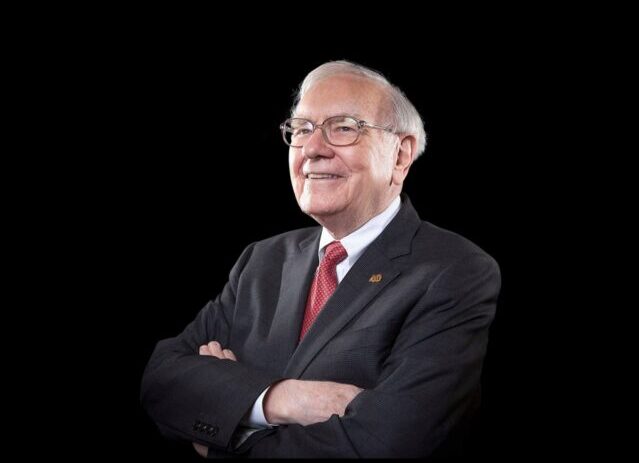 global07.com
global07.com
Lessons from the Master: What Investors Can Learn from Warren Buffett
1. The Early Life of Warren Buffett
Warren Buffett, often referred to as the “Oracle of Omaha,” was born on August 30, 1930, in Omaha, Nebraska. From a young age, Buffett displayed an interest in business and investing. By the age of 11, he bought his first stock, a share of Cities Service Preferred, and learned valuable lessons about market fluctuations.
Buffett’s education played a crucial role in shaping his investment strategies. He attended the University of Nebraska, where he earned a degree in business administration. He later went on to Columbia University, studying under the renowned investor Benjamin Graham, whose value investing philosophy deeply influenced Buffett’s approach.
2. Investment Philosophy
Warren Buffett’s investment philosophy is centered around the principles of value investing, which he learned from Benjamin Graham. Here are some key components:
- Intrinsic Value: Buffett believes in assessing a company’s intrinsic value, which involves evaluating its fundamentals, including earnings, dividends, and growth potential.
- Long-Term Focus: Buffett advocates for a buy-and-hold strategy, emphasizing the importance of patience in investing. He famously stated, “Our favorite holding period is forever.”
- Quality Businesses: He prefers investing in companies with strong competitive advantages, capable management, and a track record of consistent performance.
- Market Psychology: Buffett is known for his contrarian approach, often buying stocks when others are fearful and selling when others are greedy. He famously quipped, “Be fearful when others are greedy, and greedy when others are fearful.”

Warren Buffett
3. Berkshire Hathaway: The Investment Juggernaut
Berkshire Hathaway, the company Buffett helms as CEO, started as a textile manufacturing firm. However, under Buffett’s leadership, it transformed into a diversified holding company. Buffett’s strategy involved acquiring undervalued companies and allowing them to operate independently, which has led to significant growth.
Berkshire’s portfolio includes well-known companies like Coca-Cola, Apple, and American Express. The company’s annual shareholder meeting, often called the “Woodstock for Capitalists,” attracts thousands of investors and provides insights into Buffett’s thoughts on the economy and investment strategies.
4. Philanthropy and Giving Back
Warren Buffett is not only known for his investment acumen but also for his philanthropic efforts. In 2006, he announced plans to gradually donate the majority of his wealth to charitable causes, primarily through the Bill & Melinda Gates Foundation. His commitment to giving back is exemplified by the Giving Pledge, which encourages billionaires to donate at least half of their wealth.
Buffett’s philanthropic philosophy emphasizes the importance of using wealth to improve society and tackle pressing global issues, including education, health, and poverty alleviation.
5. Lessons from Warren Buffett
Warren Buffett’s journey offers numerous lessons for investors and entrepreneurs:
- Patience Pays Off: Successful investing requires time. Short-term fluctuations should not deter long-term strategies.
- Stay Informed: Continuous learning is vital. Buffett is an avid reader and emphasizes the importance of knowledge in making informed investment decisions.
- Value Integrity: Buffett’s reputation for honesty and ethical conduct has been pivotal in his success. Building trust is essential in business.
- Adapt to Change: While he adheres to value investing principles, Buffett recognizes the need to adapt to market changes and evolving industries.
Conclusion
Warren Buffett’s impact on the world of investing is profound. His unique approach, grounded in value investing principles, patience, and ethical practices, has inspired countless investors. As he continues to navigate the complexities of the financial markets, Buffett remains a beacon of wisdom and insight for aspiring investors around the globe.
Emotional Intelligence: The Heart of Modern Education
Emotional Intelligence: The Heart of Modern Education
Introduction
In recent years, the conversation around emotional intelligence (EI) has gained significant traction in the field of education. As schools strive to create nurturing environments that foster holistic development, EI emerges as a crucial component in shaping both academic success and personal growth. This article explores the role of emotional intelligence in education, its impact on student learning, and effective strategies for its integration into curricula.

Understanding Emotional Intelligence
Emotional intelligence, defined by psychologist Daniel Goleman, encompasses the ability to recognize, understand, and manage our own emotions while also recognizing and influencing the emotions of others. EI is typically divided into five key components:
- Self-awareness: The ability to recognize one’s own emotions and their impact.
- Self-regulation: The capacity to manage emotions in a healthy way.
- Motivation: The drive to achieve goals for personal reasons rather than external rewards.
- Empathy: The ability to understand and share the feelings of others.
- Social skills: Proficiency in managing relationships and building networks.
The Impact of Emotional Intelligence on Learning
- Enhanced Academic Performance Research shows a strong correlation between emotional intelligence and academic success. Students with high EI are better equipped to handle stress, stay motivated, and maintain focus. They tend to have better study habits and are more likely to set and achieve academic goals.
- Improved Classroom Behavior EI plays a significant role in classroom dynamics. Students with developed emotional intelligence are more likely to engage positively with peers and teachers, reducing behavioral issues. They can effectively manage their emotions, leading to a more conducive learning environment.
- Stronger Relationships Empathy, a core component of EI, allows students to build deeper, more meaningful relationships. This not only enhances peer collaboration but also fosters a sense of belonging, which is vital for emotional and social development.
- Better Conflict Resolution Skills Students with high EI are more adept at navigating conflicts. They can understand multiple perspectives, communicate effectively, and resolve disputes amicably, promoting a harmonious school environment.
Integrating Emotional Intelligence into Education
- Social-Emotional Learning (SEL) Programs Implementing SEL programs in schools is one of the most effective ways to enhance emotional intelligence. These programs focus on developing self-awareness, self-regulation, social skills, empathy, and responsible decision-making. Schools can adopt evidence-based curricula that provide structured lessons on these topics.
- Teacher Training and Development Educators themselves must cultivate emotional intelligence to model these skills for students. Professional development programs should include training on emotional awareness, stress management, and techniques for fostering a supportive classroom atmosphere.
- Mindfulness Practices Incorporating mindfulness into the school day can help students develop self-awareness and emotional regulation. Techniques such as meditation, breathing exercises, and reflective journaling can enhance students’ ability to manage stress and emotions.
- Creating a Supportive School Culture Schools should prioritize a culture of empathy and respect. Initiatives such as peer mentoring, community service projects, and open forums for discussing emotions can foster an environment where emotional intelligence thrives.
- Parental Involvement Engaging parents in the emotional development of their children is crucial. Workshops and resources that educate parents about EI can extend emotional learning beyond the classroom and into the home.
Conclusion
As we move towards a more comprehensive understanding of education, it becomes clear that emotional intelligence is not just a supplemental skill but a fundamental aspect of effective learning. By prioritizing EI in educational settings, we can equip students with the tools they need for academic success and personal fulfillment. In a world that increasingly values collaboration, communication, and empathy, fostering emotional intelligence in our schools is essential for preparing students to thrive in the future.
The Dynamics of the Indian Share Market: A Comprehensive Overview
The Indian share market, a bustling hub of economic activity, plays a pivotal role in the country’s financial landscape. Comprising major exchanges like the Bombay Stock Exchange (BSE) and the National Stock Exchange (NSE), it serves as a barometer of economic health and a platform for investors to participate in wealth creation. This article delves into the intricacies of the Indian share market, exploring its structure, key players, regulatory framework, and the factors influencing its fluctuations.
Structure of the Indian Share Market
The Indian share market operates through two primary exchanges: the BSE and the NSE. Established in 1875, the BSE is Asia’s oldest stock exchange and lists over 5,500 companies. It features the Sensex, an index comprising 30 prominent stocks that reflect market trends. On the other hand, the NSE, founded in 1992, has gained prominence for its electronic trading system and houses the Nifty 50, representing 50 diversified stocks.
Regulatory Framework
The Securities and Exchange Board of India (SEBI) regulates the Indian share market, ensuring fair practices, transparency, and investor protection. SEBI oversees market operations, monitors compliance, and enforces rules to maintain market integrity. Its role is crucial in fostering investor confidence and sustainable market growth.
Key Participants
Investors: The market attracts a diverse range of investors, from institutional investors like mutual funds and foreign institutional investors (FIIs) to individual retail investors. Each category brings unique perspectives and influences market dynamics.
Companies: Indian companies list their shares on exchanges to raise capital for expansion, debt repayment, or other business activities. Their performance and strategic decisions directly impact stock prices and market sentiment.
Brokers and Intermediaries: Brokers facilitate trades between buyers and sellers, providing essential services like research, advisory, and execution of trades. They play a vital role in market liquidity and efficiency.

National Stock Exchange (NSE)
Factors Influencing Market Trends
Several factors influence the Indian share market’s fluctuations:
Economic Indicators: GDP growth rates, inflation, industrial production, and consumer spending are critical indicators. Positive economic trends typically boost investor confidence and drive market upswings.
Monetary Policy: The Reserve Bank of India (RBI) controls monetary policy, including interest rates and liquidity measures. Policy changes can impact borrowing costs, business investment decisions, and overall market sentiment.
Global Events: International developments such as geopolitical tensions, global economic slowdowns, and commodity price fluctuations affect Indian markets due to interconnected economies and trade relations.
Corporate Performance: Quarterly earnings reports, management decisions, and corporate governance practices significantly influence stock prices. Market reactions to company-specific news can be swift and profound.
Regulatory Changes: Amendments in tax policies, market regulations, and reforms introduced by SEBI can alter market dynamics and investor behavior.
Technological Advancements and Market Accessibility
Advancements in technology, including algorithmic trading, high-frequency trading, and mobile trading apps, have revolutionized market operations. These innovations have democratized access to markets, attracting a new wave of retail investors and increasing trading volumes.
Conclusion
The Indian share market is a dynamic ecosystem shaped by a complex interplay of economic, regulatory, and global factors. Understanding these dynamics is essential for investors seeking to navigate market volatility, identify investment opportunities, and achieve long-term financial goals. As India continues on its path of economic growth and structural reforms, the share market remains a cornerstone of its financial system, driving capital formation, fostering entrepreneurship, and creating wealth for stakeholders across the spectrum.
Promoting Critical Thinking Skills in Students: A Comprehensive Approach
Critical thinking is a cornerstone of education, essential for students to navigate complex information, solve problems effectively, and make well-informed decisions in their academic and professional lives. As educators and stakeholders in education, fostering critical thinking skills among students is not just desirable but imperative. Here’s a detailed exploration of strategies and practices that can promote critical thinking effectively in educational settings:
Understanding Critical Thinking
Critical thinking involves analyzing information objectively, evaluating arguments, and drawing reasoned conclusions. It goes beyond memorization and requires students to engage deeply with content, question assumptions, and apply their knowledge in various contexts.
Strategies for Educators
- Encourage Questioning: Create a classroom culture where asking questions is encouraged. Encourage students to question the information presented, seek clarification, and explore different perspectives.
- Promote Discussion: Engage students in meaningful discussions where they can articulate their thoughts, defend their viewpoints with evidence, and respectfully challenge others’ ideas. This fosters intellectual dialogue and helps students see issues from multiple angles.
- Assign Complex Tasks: Design assignments and projects that require critical thinking. Tasks should be open-ended, requiring students to research, analyze data, and formulate reasoned arguments or solutions.
- Teach Metacognitive Strategies: Help students become aware of their thinking processes. Teach them strategies like self-reflection, evaluating their own reasoning, and adjusting their approach based on feedback.
- Use Real-World Examples: Incorporate real-world examples and case studies into lessons. This helps students connect abstract concepts to practical applications and understand the relevance of critical thinking in everyday life.

Integration Across Subjects
Critical thinking can and should be integrated across all subjects:
- Science: Analyzing experimental results, evaluating hypotheses.
- History: Assessing historical sources, understanding cause-effect relationships.
- Literature: Interpreting texts, analyzing themes and character motivations.
Each subject offers unique opportunities for students to develop and apply critical thinking skills.
Leveraging Technology
Technology can enhance critical thinking by providing access to vast information resources, facilitating collaborative learning, and offering tools for data analysis and problem-solving. Educators can use online platforms, educational apps, and multimedia resources to engage students in interactive and thought-provoking activities.
Assessment Methods
Assessment should align with the goals of developing critical thinking skills. Instead of relying solely on traditional tests, consider:
- Projects and Presentations: Assessing students’ ability to research, analyze, and present findings.
- Case Studies: Evaluating problem-solving skills in real-world scenarios.
- Argument Analysis: Assessing the quality of students’ reasoning and evidence.
These assessments provide a more holistic view of students’ critical thinking abilities.
Encouraging a Growth Mindset
Emphasize to students that critical thinking is a skill that can be developed through effort and practice. Encourage a growth mindset where mistakes are viewed as opportunities for learning and improvement.
Parental Involvement
Parents play a crucial role in supporting critical thinking development:
- Encouraging Curiosity: Stimulate children’s curiosity about the world.
- Engaging in Discussions: Encourage meaningful conversations about various topics.
- Modeling Critical Thinking: Demonstrate how to think critically about everyday decisions and issues.
Challenges and Solutions
- Resistance to Change: Address resistance by demonstrating the value of critical thinking in academic success and future careers.
- Standardized Testing Pressures: Balance preparation for tests with activities that promote deep thinking and problem-solving skills.
Future Trends
As education evolves, consider how trends such as personalized learning, interdisciplinary approaches, and the integration of technology will impact the development and assessment of critical thinking skills.
In conclusion, promoting critical thinking skills in students requires a multifaceted approach that involves educators, parents, and the broader educational community. By implementing strategies that encourage questioning, promote discussion, integrate technology, and foster a growth mindset, we can empower students to become adept critical thinkers who are prepared to tackle challenges in an increasingly complex world. This investment in critical thinking will not only benefit individual students but also contribute to a more informed and innovative society.






